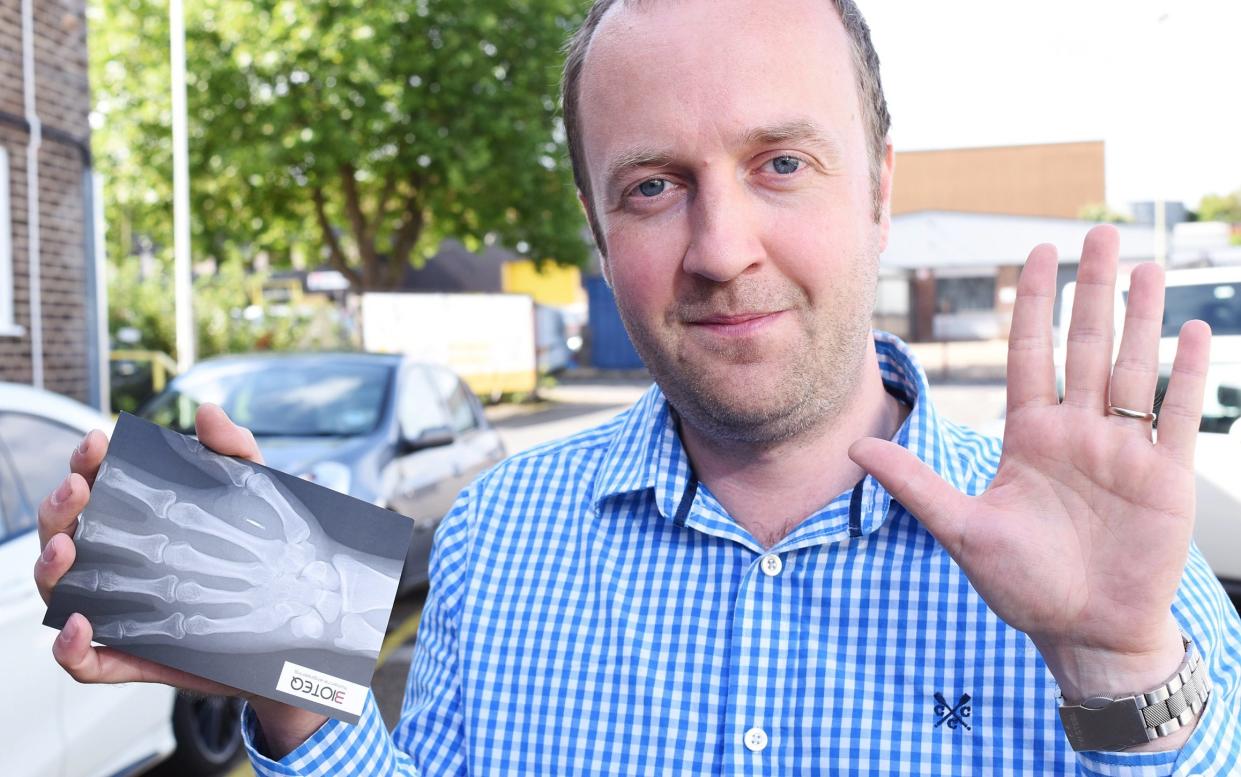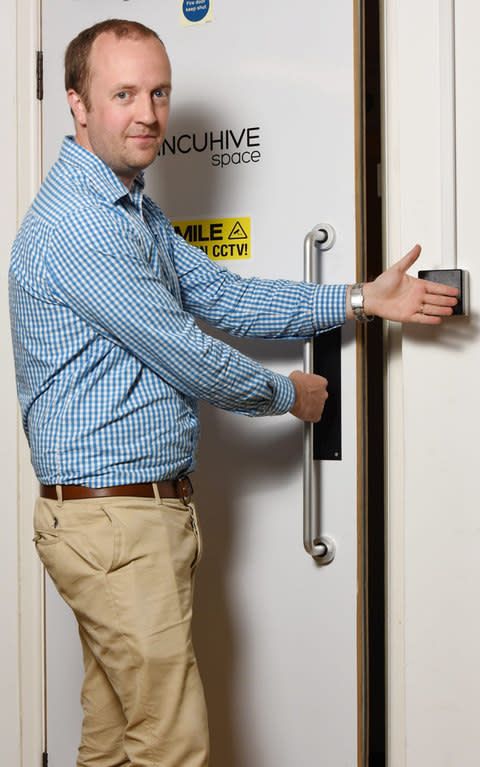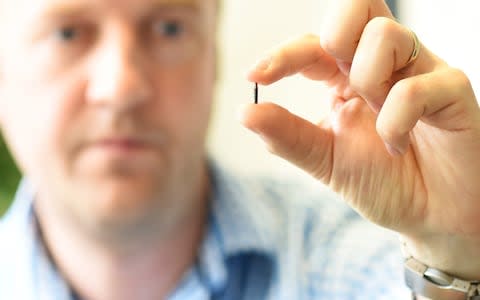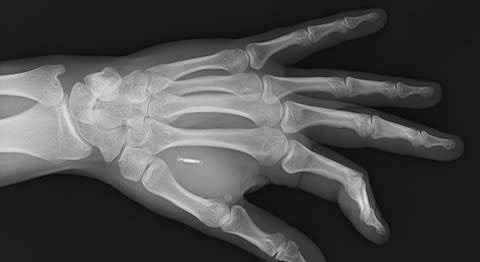British inventor microchips himself to get into house and car with a wave of hand

A British inventor has become the first in the country to be fitted with a microchip so he can open his front door, access his office and even start his car with just a wave of his hand.
Steven Northam, 33, had the tiny chip implanted between his thumb and finger and is now offering the service to businesses and individuals who want to simplify their life with technology through his company BioTeq.
He has teamed up with Dr Geoff Watson, a consultant anesthetist at the Royal Hampshire County Hospital in Winchester, Hants, to ensure the implant procedure is carried out to a medical standard.
The technology is similar to a microchip implanted for cats and dogs, and takes just 30 seconds. Mr Northam's company will also alter locks on houses and cars so they are compatible with the chip, for a cost of £300 each lock
The married father of one now has technology fitted to both his home and his BMW Z4, which starts when his hand is on the wheel.

Although Mr Northam's wife Becci, 30, has refused to be chipped, he his hoping his 10-month-old daughter Poppy will embrace the new technology when she is older.
"I would potentially let Poppy have it done down the line if she wants it done. I certainly don't have an issue with it."
Mr Northam, from Otterbourne, Hants, who had his own chip implanted six months ago, said his company is planning to offer surgery around the UK.
The chip and the implant procedure will set people back between £230 and £260 per person, while complete offices where employees can access doors or use equipment will cost upwards of £5,000.
He said one business in Andover, Hants, is now arranging for its six employees to have the technology fitted for work.
The implants work using both Radio-frequency identification (RFID) and near-field communication (NFC) technologies, much like those used on smartphones.

Mr Northam, said:"There's two demographics of people. There are those who think it's brilliant, and those who think it's the government taking control.
"That tends to be older people. But I remember parents worrying about chip and pin and CCTV cameras. Give it ten or 20 years and this will also be commonplace.
"If someone wants to break into my house, they don't need my hand - they should just break a window. And if they want to steal a car they are not going to chop your arm off."
Currently, the chips don't have the necessary permission to make contactless payments as companies want expiry dates fitted in - something which is tricky as a chip may need to be replaced.
Mr Northam believes it should be available using technology like Apple Pay, and it could even be rolled out for travel purposes like Oyster Cards and passports.

But it could also be used for seriously ill patients, or for people with dementia, by containing medical notes for doctors.
He said: "Certain people think the concept seems like complete madness while others are joining our waiting list to have the microchips installed.
"What we are aiming to do is offer the ability to have the chip installed properly under medical conditions and develop its use in a range of areas not yet considered."

